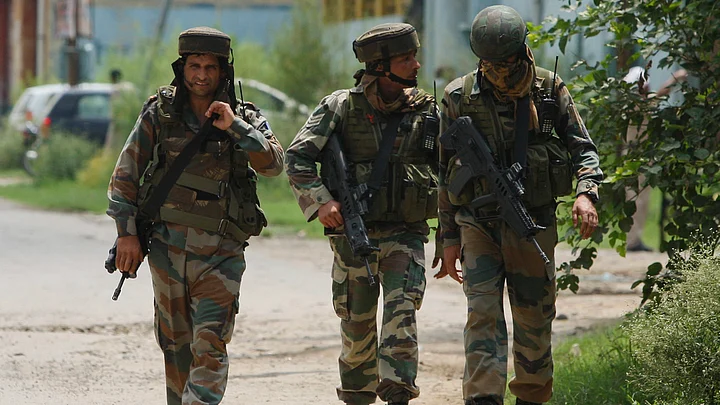A day after Army chief General Daljit Singh Suhag thundered that the vanguards of India’s borders will “not allow another Kargil”, suspected Pakistan-backed terrorists struck in Gurdaspur, Punjab, indicating, to our horror, that the Indian security establishment was caught napping. The terrorists and their handlers across the border have proved a point: they choose the place and time of attack at their will. Which does not say much about Indian preparedness or our capability to respond swiftly.
- The terrorists chose the place and time of attack at their will
- The army and other security forces operating in our frontier states have failed to live up to their reputation
- There have been a surfeit of intelligence failures in which the errant officers have got away with it
- Goofing up by security agencies has a crippling effect on combat operations
Terror attacks, whether in Jammu and Kashmir or in the northeast, have occurred with such regularity over the past one year or so that it leads us to the inescapable conclusion that hollow claims of “befitting reply”, “stepping up vigil” and other such insincere promises notwithstanding, the army and other security forces operating in our frontier states have failed to live up to their reputation.
The Gurdaspur attack also points to the incompetence of our intelligence agencies, specifically the Intelligence Bureau, the lead counter-terror agency, where a generalist was elevated as director. The operations specialist was shunted out and parked in an insignificant position in the maze of India’s national security bureaucracy. Intelligence failures are an accepted part of counter-terrorism, but in India there have been a surfeit of such blunders in which the errant officers have got away with it.
Simplistic Approach
While the army marshalled all its resources to end the Gurdaspur siege, the Narendra Modi government must now take the opportunity to secure our borders in the west and the east. Successive governments – the Manmohan Singh-led UPA and now the Modi-led NDA – adopted a simplistic, easy and entirely misguided approach towards a most complex and unstable part of the sub-continent. With every meeting between Modi and Nawaz Sharif, the Pakistan army, the ISI and their band of trained and trusted terror outfits have cocked a snook at the Indians, almost mocking them.
It is at these moments that chest-thumping statements such as the ones by Defence Minister Manohar Parrikar – Indian forces would resort to stealth operations to hit terrorists in J&K hard – or of Minister of State for Information and Broadcasting Rajyavardhan Singh Rathore’s shrill “hot pursuit” call in Myanmar, sound puerile and exhibit immaturity. The fallacy of body counts and quantum of weapons seized is there for all to see.
Crippling Effect
Even as the operation to take out the terrorists in Dinanagar was on, the Congress raised the words most dreaded by a political party in power – intelligence failure. Goofing up by security agencies has a crippling effect on combat operations. Counter-terrorism efforts, whether by the police, paramilitary forces or the army are often dependent on local contacts who peddle identical junk inputs among various security forces.
Besides, with little or no human assets across the border, intelligence agencies rely on wireless chatter which are often the result of clever acts of disinformation and deception aimed at deflecting their attention. The Pakistanis are past masters at such tactics which the Indians fall for hook, line and sinker.
Coordination Problem
The problem, and one unresolved for years altogether, is of coordination. The government, especially National Security Advisor Ajit Doval, with a formidable special operations background, must address this lacuna which almost always undermines counter-terrorism or counter-insurgency operations.
To this end, the government must revive the idea of establishing a Counter-Terrorism Centre (CTC) mooted by the UPA regime. Parties which opposed the proposal at that time must rise above petty politics and see reason: a CTC, manned by a range of specialists in operations and analysis, would have a far more focused approach towards counter-terrorism than multiple agencies and forces flailing about in the dark.
(At The Quint, we question everything. Play an active role in shaping our journalism by becoming a member today.)
